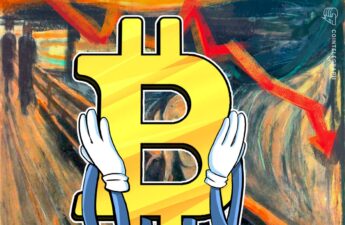Gary Gensler admitted in front of the House Financial Services Committee (HFSC) today that a Pokémon card is not a security in his view, under United States law—but the SEC Chair did not give a definitive answer when asked about whether a tokenized Pokémon card could be classified as a security.
New York Representative Ritchie Torres questioned U.S. Securities and Exchange Commission (SEC) Chairman Gensler in a U.S. House Committee on Financial Services meeting Wednesday discussing oversight of the SEC.
“Suppose I were to purchase a Pokémon card,” said Ritchie. “Would doing so constitute a security transaction?”
“You can purchase a Pokémon card—I don’t know what the context is, but if you’re just purchasing a Pokémon card,” Gensler replied before Torres chimed back in.
Torres pressed Gensler on whether the card is a security, to which Gensler replied, “At a retail store, that’s not a security.”
The U.S. Representative then asked Gensler whether buying a blockchain token that represents the physical card—essentially, a Pokémon card NFT—would yield the same classification if purchased from an online exchange.
“I’d have to know more,” Gensler replied.
“So for you, the process of tokenization is what transforms a non-security transaction into a security transaction?” Torres said.
“If the investing public is anticipating profits based upon the efforts of others and exchanging funds, that’s the core of the Howey Test,” Gensler responded.
Gensler did not immediately respond to Decrypt’s request for comment. When reached for additional comment following the hearing, Torres called Gensler’s responses “incoherent” in an email to Decrypt.
“Chair Gensler’s answers to my questions were as incoherent as his overall approach to regulating crypto,” Torres told Decrypt. “The manipulation of securities law that has become his modus operandi is an open invitation to arbitrary enforcement.”
Torres argued that Pokémon cards are never securities—and tokenizing one or putting it on the blockchain doesn’t suddenly turn it into a security.
“Even though Chair Gensler pretends to be ‘technology-neutral,’ the tokenized Pokémon hypothetical reveals a profound prejudice against blockchain technology,” Torres added.
Why would a Pokémon card be tokenized as an NFT, anyway? For one, it’s a way to connect the physical world with the digital, as a digital twin connected to a physical card gives the owner another way to show off their collection beyond summoning friends to visit their living room or home office.
JUST SOLD 🤝
These released in 2001 for the Pokémon Center NY opening 🗽
Less than 200 PSA 10 examples of each exist today 💎
Someone instantly acquired them onchain in a few clicks ⚡️ pic.twitter.com/2QzhxCcUud
— Courtyard.io (@Courtyard_NFT) September 3, 2023
It’s also not exactly a hypothetical. On Courtyard, a crypto-powered card-trading platform, collectors who buy Pokémon cards retain a digital version via the Polygon NFT version of the card, while the physical card remains vaulted and insured at financial services firm Brinks. The Pokémon Company, the IP holder of the massive Nintendo gaming brand, is not involved with such post-sale tokenization efforts.
Tokenized Pokémon cards also allow collectors to earn passive royalties on their collectibles each time they’re sold, according to Courtyard’s website. And physical card owners can send Courtyard their collections to be stored and receive NFTs as digital proofs of ownership, should they choose to sell their cards at a later date.
During the Wednesday meeting on the SEC, other U.S. Representatives asked Gensler questions about topics such as the threat artificial intelligence or AI-generated content could pose to the U.S. economy, meetings Gensler had with various officials, and other concerns.
This is far from the first time that Gensler has been pressed to offer clarity on blockchain assets, however. Back in June, Gensler accused the broader crypto industry of “wide-ranging noncompliance” and likened crypto actors to 1920s-era “hucksters,” “fraudsters,” and “scam artists.” Gensler and the SEC have yet to offer regulatory clarity surrounding what does and doesn’t constitute a security, or a clear path forward for crypto companies beyond referencing the Howey Test.
“A digital asset is not a security in itself, but can be part of an investment contract, which is a security under the Howey Test. An investment contract requires exactly that—a contract,” Torres told Decrypt when asked for his broader stance on U.S. crypto regulation.
“Despite his air of supreme self-confidence, Chair Gensler could not cite a single Supreme Court case in which the high court found an investment contract in the absence of an actual contract. The Howey case itself involved not one, but two contracts,” the representative added.
Stay on top of crypto news, get daily updates in your inbox.
Source: https://decrypt.co/199009/tokenized-pokemon-card-security-sec-chair-gary-gensler-responds-kinda


